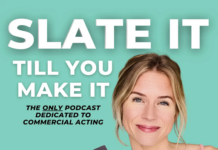At 7 years old most kids play video games, Sean wrote stories. On the way to hockey practice, or during lunch he’d always find a way to write. To get the unending ideas out of his head and into the world.
As a boy, it was clear to Sean’s parents he was different. He wanted something different. Yet it wasn’t until halfway through college that he finally took the leap towards uncertainty.
In the back of university lecture, Kemp studied online business more than biology. He learned the ins and outs of digital advertising, copywriting, and psychology so he could apply his creative mind to the world.
Then with a bit risk and a lot of late nights, his business started to grow. Kemp told us it was a few cold emails that finally sparked his career. A career allowing him to use storytelling, his creative mind, and marketing gifts to help companies scale.
Here is how he does it.
Creating Bizarre, Pattern-interrupting, Attention-grabbing Ideas
In an interview, Kemp says, “Creating sales copy that converts skeptical consumers is no easy task. Beating million-dollar controls is even harder. It often involves one of two things. Reconstructing the argument within the copy with proof (and substantiation) or a bizarre hook.”
You can almost sense the seriousness with which he brings out the idea. “If the proof is good, I look to strengthen believability. One example is to quote someone they look up to, like Harvard or Mayo Clinic.”
When asked to beat controls, Kemp first looks to change the lead. A lead is the first few minutes of a video or sales letter that grabs and wins the attention of the audience. As Kemp explained, this is often where most viewers and readers are lost. And often a prime opportunity to win their attention
The addition of bizarre, pattern-interrupting, attention-grabbing ideas can catapult conversions on anything like webinars, video scripts, sales pages, even ads.
Using Nostalgia to Obliterate Red Flags and Client Objections
According to research conducted by the University of Southampton, nostalgia brings about equanimity, or the feeling of calmness and composure, more so in a challenging situation.
In another study seeking to understand customer objections and statistical investigation
in marketing communication, the researchers concluded that “Customer objections were interrelated and as such, knowledge of subjects for which objections were found to be interrelated would allow for sales management to be prepared for potential objections in similar subjects.”
By using data and insights from the study of client objections, Kemp is able to curate a sales method that wins the hearts of your customers.
Use Relatable Stories to Sell An Idea
On another level, it is important to connect to people personally in order to get them to make personal decisions that will favor your business. To help companies convert with their sales message, Kemp uses relatable stories to sell goods and services.
It is more of the science of empathetic selling.
By using empathy in creating and embedding emotions within the sales campaign for a company, he is able to tap into the customer’s past to convince them to buy.
There is actually scientific proof that empathetic selling works, so Kemp is not mistaken.
In a study conducted to investigate the impact of empathy on relationship outcomes in business, researchers from the University of Minnesota Duluth unearthed quite an interesting fact. They found that empathy has a strong positive relationship with listening, trust, and satisfaction. The study concluded that “Trust in and satisfaction with the salesperson were positively related to future interaction expectations.”
Empathetic selling as a strategy that Kemp employs helps the client company/business build trust and tear down the objections of the audience. Kemp uses breaking news stories, weird scientific history, and the oddest things to turn attention into revenue for the businesses he works with.
It is then easy to understand why MarketsandMarkets projects that by the year 2021, the emotion detection and recognition market will be worth $36.07 Billion.
Conclusion
In Sean Kemp’s world, conversion and rightfully profiteering from a good sales message is not a hard nut to crack. And it’s because he’s able to apply simple psychology to get people to buy online. Having been in the business for years now, Kemp knows all too well what each company that comes to him needs. That is why his demand as a copywriter and direct response marketer is always on the rise.








